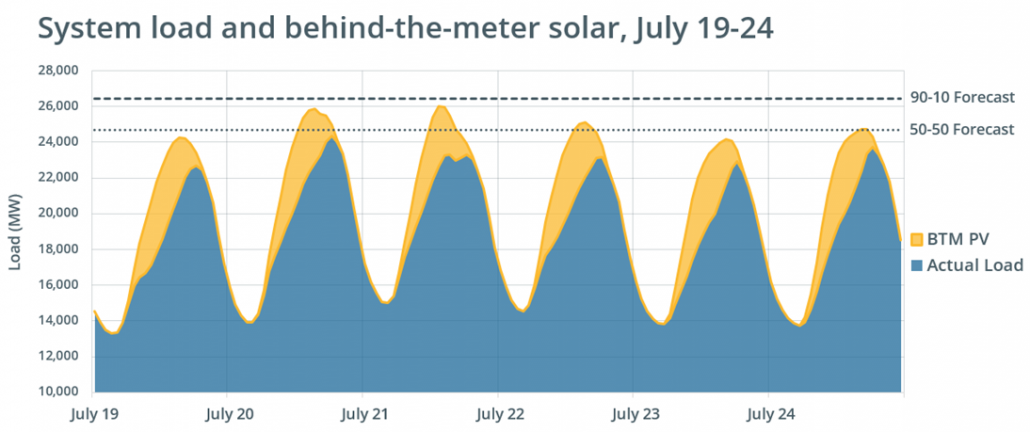Sunrun Supplies Capacity in New England Using Virtual Power Plant
By Christian Roselund
Residential solar provider Sunrun has completed its first season operating a virtual power plant (VPP) comprised of rooftop solar and energy storage systems to supply capacity to New England’s wholesale electricity market. From June through August, an estimated 5,000 home solar and battery systems operated by Sunrun in New Hampshire, Massachusetts, Rhode Island, and Vermont exported 1.8 gigawatt-hours of electricity back to the grid.
The contributions of small-scale solar to meet grid needs are further supported by an analysis by the region’s grid operator which shows that rooftop solar reduced peak demand on New England’s grid during the hottest days of the summer during the week of July 19 through July 25. During mid-day solar contributed as much as 4 gigawatts of capacity; during the system peak demand was reduced by 1.5 gigawatts or more. This allowed the New England Independent System Operator (ISO-NE) to keep system demand below the average forecast through a heatwave in July when the region-wide heat index rose above 38C.

The contribution of solar to meeting system load on the ISO New England grid during 19-24 July 2022.
Credit: ISO New England.
Sunrun’s VPP aggregated an estimated 5,000 small-scale solar and battery systems across four New England states. E&E News notes that this follows on Tesla operating a solar and battery VPP in Texas’ wholesale market; however, Sunrun’s contract in New England is the first time this has been done in a multi-state wholesale market. As the “duck curve” effect imposed by solar pushes the peak need for electricity generation from the rest of the system into the evening, it will be essential to add more batteries to the mix. Adding batteries can also reduce the use of the petroleum-fired power plants which are turned on during evening peak demand in New England. These plants disproportionately increases emissions of both CO2 and airborne toxins.
There are still regulatory barriers to solar and battery VPP participating in other wholesale markets. To address these and other issues, in 2020 the Federal Energy Regulatory Commission issued FERC order 2222. This rule requires grid operators to allow full participation of distributed energy resources. However, many U.S. grid operators have not yet filed plans to comply with this order.
News coverage: Northeast embraces first-of-a-kind virtual power plant (E&E News)
Press release: Sunrun Activates Nation’s First Residential Virtual Power Plant in Wholesale Market (Sunrun)
